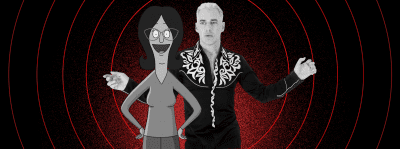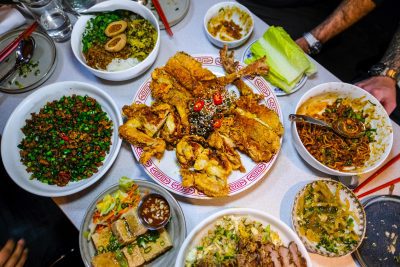“This Is Just What Success Looks Like”: The Illuminating Work of Saeed Jones
When Saeed Jones smiles, he lights up the whole room. (His side-eye, similarly, is chilling.) When we first met in 2012, I knew him as a brilliant poet who loved Toni Morrison. (The author of Sula, Song of Solomon, is how—over a sticky, unsteady table in Botanica—we first connected.) Since then his light has illuminated steadily bigger rooms: On Twitter, where he wields emoji like a scalpel. As BuzzFeed’s founding LGBT editor, where he helped bring “yaaass” into mainstream vernacular and contextualized that language’s history with smart, sensitive stories. As the author of Prelude to Bruise, a deeply felt, even embodied, collection of poems that in 2015 won the PEN/Joyce Osterweil Award for Poetry and the American Library Association’s Stonewall Book Award/Barbara Gittings Literature Award and was a finalist for the National Book Critics Circle Award. As an essayist, where he has told heartrending stories and imparted devastating criticism. As BuzzFeed’s first literary editor and now executive editor of culture, where he founded Reader—a new outlet for fiction, essays, and poetry—and established BuzzFeed’s Emerging Writers fellowship—a new engine for diverse talent in media. In all these rooms, Jones’s light is dazzling.
Tonight, underneath the Manhattan Bridge, the Community of Literary Magazines and Presses (CLMP for short) bestows its third annual Energizer Award for Exceptional Acts of Literary Citizenship on Jones. Paul Legault, the organization’s director of programs and strategic communications, speaks about Jones’s merits, the reasons for which he was chosen for this award, with a mixture of isn’t-this-obvious and isn’t-this-amazing. “He’s very vocal in the digital sphere, but he’s also very active on the ground, at events,” Legault explains. “Where ever you see him—whether you follow him on Twitter or you run into him at McNally Jackson or are corresponding with him at BuzzFeed—he’s always pushing great literature.”
Legault points to Jones’s work creating the Emerging Writers Fellowship in particular. “It seemed to have come out of nowhere,” he says “and it was driven by Saeed.” Legault imagines the “hundreds of new literary champions in the future who might be winning this Energizer award,” writers and editors who will have been supported by the models Jones has already created. There’s that note of amazement: Legault goes a little quiet, reflecting. “He’s done so much in a short period of time.”
* * *
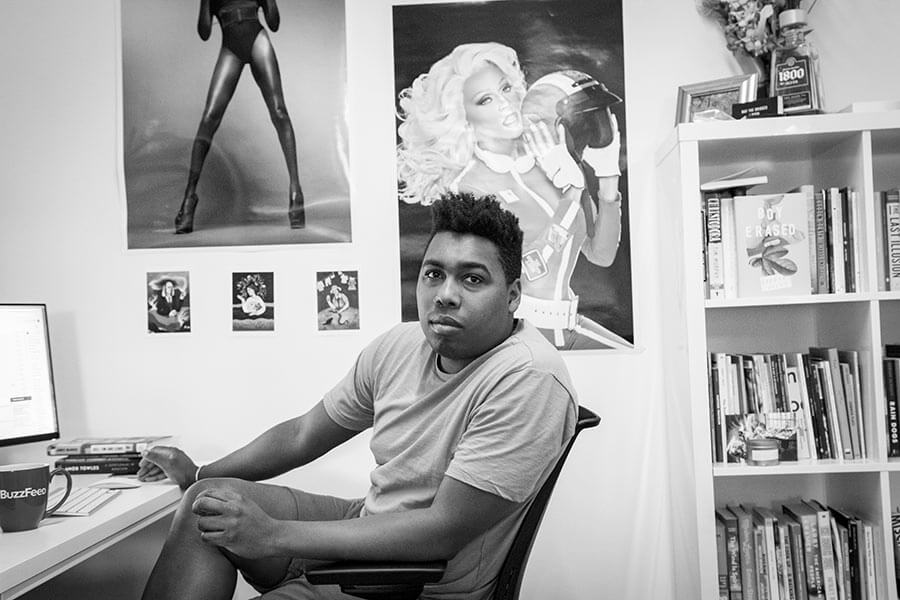

Jones joined BuzzFeed in January 2013—his first media job. He launched BuzzFeed’s LGBT vertical with a manifesto: we’re here, it says “we’re queer, and gurl, listen: We’ve got a lot to talk about.” His vision expands outwards, from RuPaul’s Drag Race to LGBT teen homelessness. It’s a preview of what’s to come.
“His ambition to tell new stories and change the substance and tone of LGBT journalism—to make it much more inclusive—had immediate impact on us,” Ben Smith, BuzzFeed’s editor-in-chief, observes via email. “And, I think, the industry.”
Since then, “you can see his DNA all throughout the work we do,” echoes Shani O. Hilton, BuzzFeed’s head of U.S. news.
“I’ve had a nontraditional career trajectory,” Jones says. Born in Memphis, he grew up in Lewisville, Texas, and earned his bachelor’s degree at Western Kentucky University. “I started writing for the internet because I was poet, because I was young, because from the very beginning I was in Kentucky, I was not in New York.” He mentions the first three places he published his prose: Ebony, The Rumpus, Lambda Literary—all online. “I was fortunate that for me it was just organic. I wasn’t some writer who had to make the transition to the social web.”
“Now I’m managing a department of around twenty-ish people.” He compares it to his previous career: teaching high school in Newark and college at Rutgers, where he got his MFA. “You have an entire group of people you have to see every day and you are accountable to them. Your audience is right in front of you.”
Of his work as executive editor of culture, he says, “It’s my job to help my team make something of this American moment. Paying attention to American culture is asking America to punch you in the stomach over and over again. But,” he asks, “to have the opportunity not to punch back but to illuminate and clarify?”
“Culture coverage is doing its job when it’s disruptive. When it isn’t, it’s smoke and mirrors, it’s polished, it sounds profound but it’s nothing.”
I ask about the variety of work BuzzFeed produces: podcasts and poems and personal essays and reported stories. “It lights up different forms of our humanity,” he answers. I recall the conversations we would have back in 2013 about visual narratives—the things it could do that text alone couldn’t. (A single story is not the only dangerous thing; so too are single modes of storytelling.) “We deserve to laugh,” Jones insists. “We deserve to be entertained too. A poem can be just as effective as a quiz.” Even the creative, the unexpected, can inform the most hard-hitting news story.
He admits that it took time for him—and all of BuzzFeed—to build the reputation they now enjoy: regularly breaking news, publishing award-winning poets and fiction writers, interviewing the future president of the United States on a podcast. Once—years ago—Jones reached out to a Pulitzer Prize finalist about contributing work, and the writer pitched a list about cats. “It wasn’t a cruel joke,” Jones explains. “It takes time for people to catch up with your vision of what you’re trying to do.”
“We just want to publish really good writing,” Karolina Waclawiak, Jones’s deputy culture editor, tells me. Before joining BuzzFeed in December 2015, she was an editor at The Believer, publishing some of Rachel Kaadzi Ghansah’s first and finest essays and finding Leslie Jamison in the slush pile. That Jones brought her aboard speaks to the seriousness of his purpose: Waclawiak is a big deal.
“There’s so much value in running poetry and running fiction and it doesn’t need to translate into clicks,” she says. Waclawiak remembers running an essay by poet Eileen Myles this past February. “‘Eileen Myles, BuzzFeed contributor’ is not something I thought I’d ever see.’” She laughs. “People’s heads started turning.”
For Jones, a publication’s “diversity of voice, of aesthetic, of style, of subject matter, of form” defines success. “It’s like holding a beautifully cut diamond up to the light. It’s a different color, a different sheen, every time.”
Diversity is a subject Jones has been asked about ad nauseam. “There’s not much more I can say,” he says. “I’m cannibalizing myself.” He’s asked, in part, because BuzzFeed has come closer than any other mainstream media company to achieving the dizzying, diamond-like richness that comes with real diversity. He’s also asked because many people don’t want to do the same work Jones (and Smith and Hilton and Waclawiak) have done. They want a magic bullet, a secret password, a shortcut.
“Diversity isn’t a fad,” Jones says, pushing back against the idea of specialized knowledge. “It’s called being a good editor.”
“It’s not just a nice thing, a moral thing—it’s being successful.” If his work has any effect on the industry, Jones wants it to be this: for people to see diverse workplaces and diverse output and say “Oh, this is just what success looks like. This is just what it means to do your job effectively.”
“I want to be so good,” Jones says, “that our success becomes a banality.”
* * *
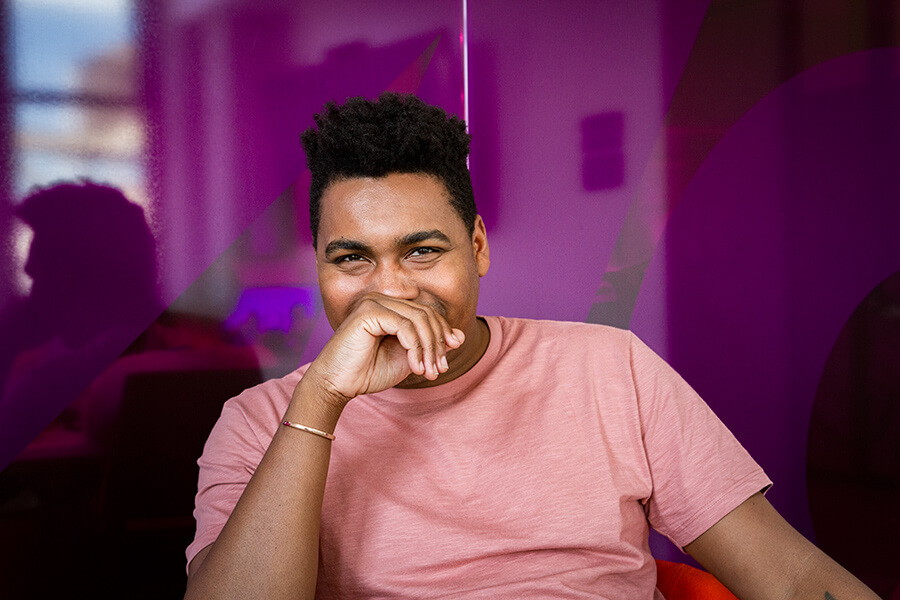

Somehow, this isn’t the whole story. “I am working on a memoir—the only thing more consuming than another human being.” Jones laughs, and I shake my head, mute, on the other end of the phone call.
This incredible juggling act—his work as a high-powered editor at a conspicuous media company, as a literary citizen (he is, for instance, co-hosting the National Book Awards Reading later this month), as a poet (most recently published in the current issue of Tin House), as the author of a memoir-in-progress (which he sold to Simon & Schuster in spring 2015)—is worth mentioning. I sort of understand how he does it, because he has explained it to me. But the truth of it remains just out of reach. Somehow Saeed Jones does all these things and still manages to look cute in his Instagram selfies.
“My team gets it,” he says. Waclawiak is a novelist, most recently of The Invaders; books editor Isaac Fitzgerald just released a new book, Knives and Ink, with illustrator Wendy MacNaughton. The support he’s gotten from his workplace is crucial. “It’s allowed me to dive into the book without that anxiety—I’ve always associated opportunity with anxiety. If you jump a little higher, it’s farther to fall.”
And, despite what it may look like, Jones has significantly cut back on his schedule. “The book has forced me to clarify my relationship to opportunities, however flattering they may be. You feel that pressure. How do you do this and not wear yourself out?” For Jones, another part of his strategy is compartmentalization. “There are just different rooms in my brain and I have to keep the doors locked, so to speak.”
How is writing the memoir, I ask, different from his first full-length book of poems? Prelude to Bruise also came out while Jones was at BuzzFeed. “It was easier frankly with poetry,” he answers, “because it’s more compressed. Poetry collections are also much more public as works in progress—poets do readings all the time. I miss getting to share what I’m working on with people. I’ve only read from the manuscript in public two, maybe three, times in four years.”
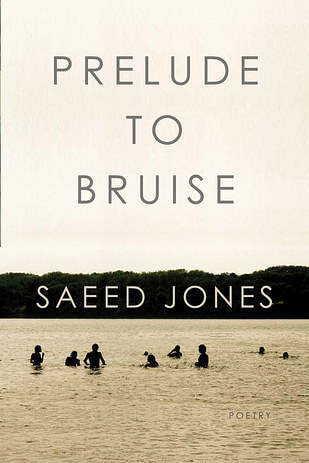

Still, Prelude to Bruise was instructive—even catalyzing—for this next project. Though he had published chapbooks in the past, “I hadn’t gotten to see on a larger scale what it means when you publish your book.” When you hand your story over to other people, Jones explains, “to me, it ceases to be your story. Your name is on it, but it’s all about how people read it, how people interpret it. It challenged me as I did reading after reading. I would talk to tenth graders who had read some of the poems, and to grandparents who had read the same poems. You get to see the story as an object.”
When a story, “this thing you thought you knew really well, and thought you owned, and thought you were the beginning and end of,” becomes an object separate from yourself, “it’s actually much more slippery.” This experience of disconnect brought Jones back to a story he first wrote about in 2012: a personal essay, published in The Rumpus, called “How Men Fight for Their Lives.” It’s now the title of his forthcoming memoir. I had first heard Jones tell this story—about a sexual encounter that turned dangerous—at a party. When his essay was published, I blogged (yes, deal with it) about the experience of hearing it versus reading it. In person, the story “was supposed to be wild—something crazy and, because crazy, funny—but there was always this dark, unsettling thread running through it, even during his magnetic, hilarious jujitsu demonstration.” On the page, instead, “the darkness is not a thread but the fabric.” Now, nearly a decade after the events of that night, Jones revisits it again.
“I thought I knew that story,” he says. Now he felt pushed “to question my empathy, or lack of empathy, for myself. My empathy, or lack of empathy, for this other man.” What was initially supposed to be a series of essays became bigger, a single (if not perfectly linear) trajectory. “The deeper you go into any memory, it shoots out into other experiences. It was interesting to try to get to the root.”
Now it spans from Jones’s preadolescence—a moment in time, 1998, when both Matthew Shephard and James Byrd Jr. were brutally murdered for being gay, for being black—to college and perhaps beyond, to the sudden death of Jones’s mother in 2011. “My editor and I have had an ongoing dialogue about what it means to fight for your life,” Jones says. “Sometimes it’s visceral. Sometimes you are literally in a room wrestling with a stranger. Sometimes you are the stranger. Sometimes grief is the stranger.”
“I’m having to look at myself as a character,” he says. “What did he want, why did he do that?” Jones asks, and then cautions. “Just because something is the first answer doesn’t mean it’s the right answer.”
“You just do your best,” he says. “That’s what I’m doing.” It’s the real answer to how all this gets done. “I am trying to be more ferocious in terms of protecting the bigger picture,” he says. “You just have to say no.” You have to prioritize.
“I could talk to five people over coffee, do ten panels a month,” he says, “or I could actually create a fellowship. I could actually write this book and finish it.”
* * *
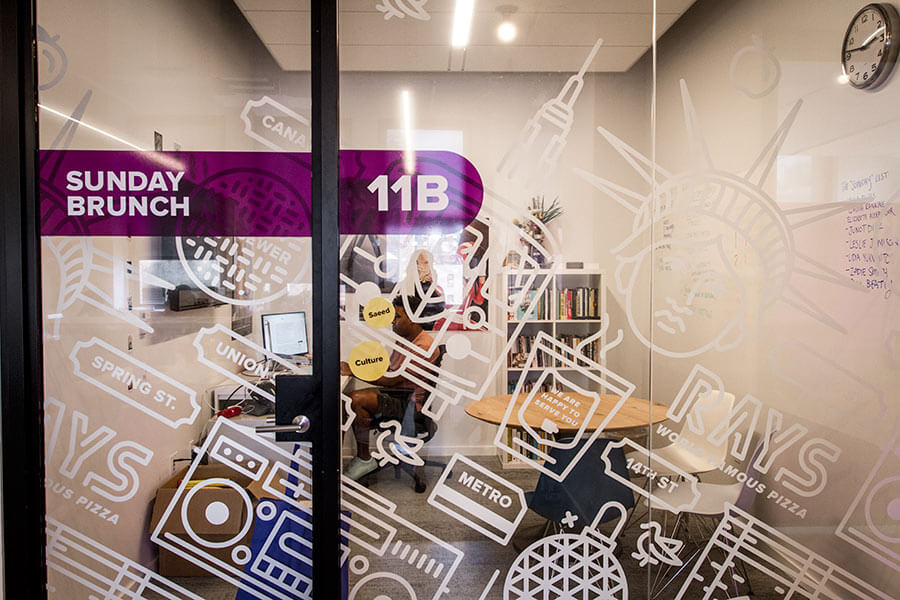

Jones’s priorities are big ones: writing books, like Prelude to Bruise and the forthcoming How Men Fight for Their Lives, that travel through the world independent of him; and building institutions, like the Emerging Writers Fellowship, that change the landscape of media and publishing.
“Once you identify an issue, that’s the baseline,” Shani O. Hilton explains. “There’s an issue about diversity in terms of hiring. You see how small, how white the hiring pool is.” And so, if the hiring pool doesn’t offer what you need: alter it.
“We all know there’s so much hand wringing in the publishing industry about what are,” Waclawiak says. She’s talking about the statistics: both she and I are part of publishing’s white (79 percent), straight (88 percent), able bodied (92 percent), and female (78 percent) majority. With the creation of the Emerging Writers Fellowship, she says, “Saeed, instead of joining that chorus, made real, impactful change.”
“With the mission of diversifying the broader media landscape by investing in the next generation of necessary voices,” the 2016 application page declares, “BuzzFeed’s Emerging Writers Fellowship is designed to give writers of great promise the support, mentorship, and experience necessary to take a transformative step forward in their careers.” The four month program—inaugurated last winter with the first class of four fellows—is designed to, as Waclawiak describes it, “mentor and nurture writers,” both in the short-term (in their immediate work for BuzzFeed), and in the long (in “thinking about, ‘What kind of writer do I want to be?’ ‘How do I advocate for myself properly?’”) This year’s class will have the option of working from the New York office, where Jones is based, or the Los Angeles one, where Waclawiak works. “L.A. is not inexpensive,” she explains, “but there’s a sense that you need to be in New York to be in the publishing industry and I just don’t think that’s true.” She hopes it will make the fellowship “a little more accessible.”
All of the 2015 fellows, she says, “in different ways had a moment where someone wrote to them and said, ‘Thank you for writing this. I’ve never seen anyone write about this.’ That, to me, is everything. That’s why I’m an editor.”
Hilton recalls when Jones first came to her with the idea for the Emerging Writers Fellowship. “It became clear that this was a bigger project and needed funding.” For their four months in New York or Los Angeles, the fellows receive a stipend of $12,000, aka a living wage—the rarest of prizes. Hilton marvels at the idea’s fruition. “That’s the kind of person Saeed is,” she says, “he follows through.”
“We’ve hired one writer”—associate culture editor Tomi Obaro—“and sent three out with really good portfolios,” she adds. Of the investment of time and money, Hilton says, “maybe it doesn’t pay off tomorrow, maybe it doesn’t pay off next year. But you know it’s worth it right now.” With the fellowship, BuzzFeed has placed a long-term bet that after ten or twenty years the hiring pools for writing jobs will be that much more diverse. That would make Hilton and Jones’s jobs more easy, or at least different. Jones dreams of a day where he’ll have “to really woo talent” because there’ll be so many more opportunities available and so many more writers from diverse backgrounds making a living.
This is what the substantial, but very feasible, work of diversifying an industry looks like. “I don’t know what else to do,” Jones says. “My hope is that people in positions of influence will just copy it. The format and the structure of the fellowship are pretty transparent.” There is no secret password. “Just do it.”
* * *
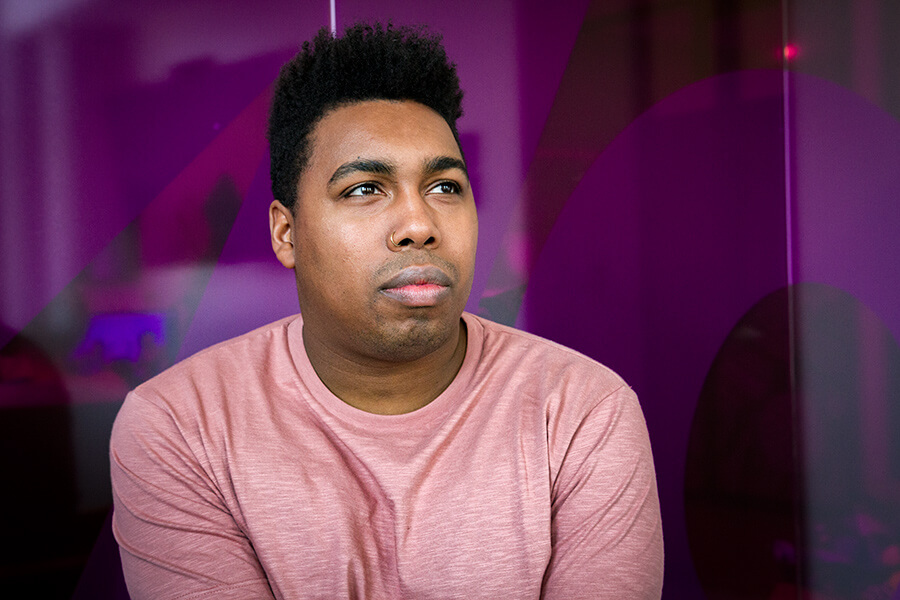

One of my favorite sections from Prelude to Bruise is its titular poem—a work full of mouthy alliteration and assonance: “Good boy. / Black boy, blue-black boy. / Bad boy—rap rap.” It is about the moment before you get hurt; a moment in which you know you will be hurt; a moment in which you are good and bad (or so the speaker says); bruised, burning, broken. It’s disturbing and beautiful, which is also a good way to describe its subject matter: a heady mixture of sex and violence and power. But its final line, “Begin again, bend,” tilts the meaning. Living things that bend, as Aesop famously has it, do not break: they survive.
If you squint your eyes, or find the right Snapchat filter, Jones’s life looks from the outside like something aglow. He is radiant, that is a true fact. But if you find yet another angle, you see a man working very, very hard. “He’s both artistic and pragmatic, which are two things that don’t always go together,” Hilton observes.
“A lot of people don’t look around and say, ‘How can I help?’” Waclawiak adds. “He does that every day. ‘Who can I help? Who can I pull up? Whose work can I illuminate?” It is a moral vision, but also a resolutely practical one. Jones’s life and work—his poems, his essays, his editorial leadership—are grounded, not in the impossible, but the possible.
This, too, is what success looks like: like a man who continues to fight for his life, whose fight illuminates our own.
Photos by Jane Bruce
You might also like 














